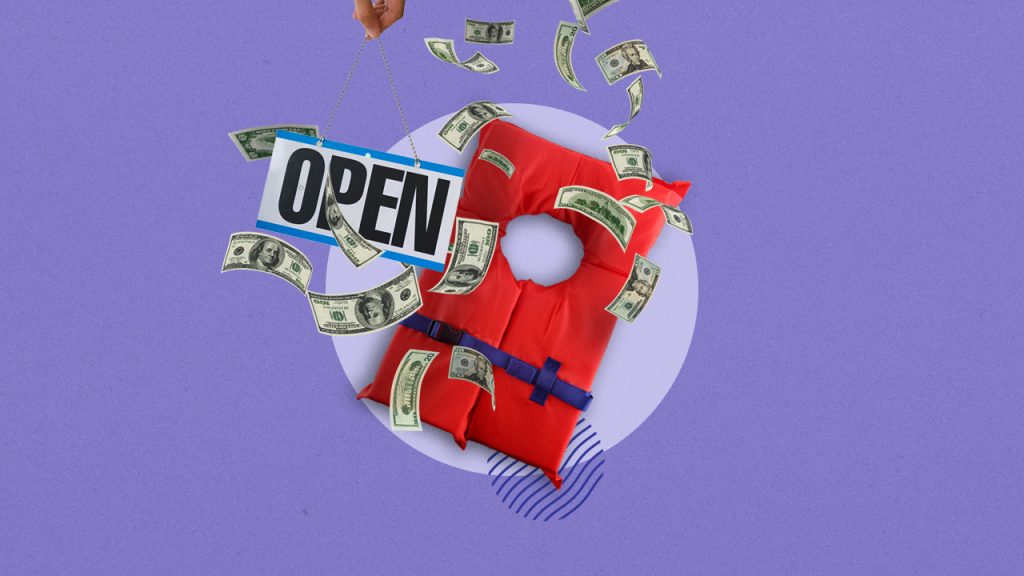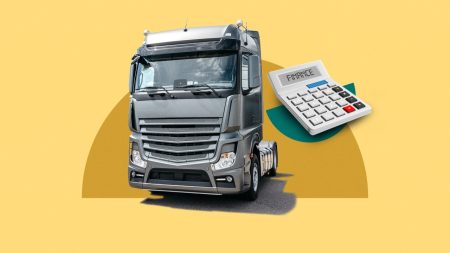Key takeaways
- Bad credit business loans are high-risk loans for borrowers with personal credit scores under 669
- These types of business loans can have high interest rates to offset the risk of lending to a high-risk borrower
- Alternatives include grants, business credit cards and crowdfunding
A business loan for bad credit can provide small business owners with much-needed financing. These loans can help purchase equipment, fund day-to-day operations or expand your business. The right bad credit business loan can also help you build credit and improve your credit score.
Getting a business loan when you have bad credit can be a challenge. These loans have higher interest rates, and you may have to jump through more hoops to get approved compared to business loans for people with good or excellent credit. To find the most affordable option, you’ll need to shop around and compare lenders. You’ll also need to make sure you select the right type of bad credit business loan.
Read on to learn more about the types of business loans for high-risk borrowers, which one you may be eligible for and how each option works.
Types of business loans for high-risk borrowers
Compare the types of bad credit business loans to decide which one works best for your business.
Term loans
Term loans provide a lump sum of cash that is repaid at fixed intervals with interest. These loans are offered by banks, credit unions and alternative online lenders.
Compared to other types of business financing, term loans typically have lower interest rates. They’re often used to fund significant purchases or long-term investments in your business.
Online lenders tend to be more willing to work with business owners with less-than-ideal credit. Some have minimum credit score requirements of just 500, but the loan amount will likely be lower than what traditional banks offer. These lenders may also limit the repayment terms to short terms of two years or less, requiring you to pay back the loan quickly.
Secured loans vs. unsecured loans
Business loans can be secured or unsecured. Secured loans require you to put up an asset as collateral to back the loan. This collateral might be equipment, invoices or property.
Providing personal or business collateral makes a lender feel more confident in giving a loan to an applicant with a risky credit profile. You may even get better rates and terms if you provide collateral. That’s because if you default on the loan, the lender can seize the collateral.
Unsecured business loans, on the other hand, do not require providing collateral to obtain the loan. As a result, interest rates are typically higher. And because they are unsecured, you’ll need a better credit score to get approval for this type of loan.
Although you won’t need collateral, your lender may request that you sign a personal guarantee, making you personally responsible for the loan if the business defaults.
Bankrate insight
Notable lenders offering bad credit business loans include:
- Fundible: Fast prequalification and loan amounts ranging from $5,000 to $10 million and terms of 12 to 120 months
- Credibly: Specializes in short-term loans ranging from $5,000 to $600,000
- Backd: Provides business loans from $10,000 to $2 million with terms of 6 to 16 months
Lines of credit
A business line of credit is similar to a business credit card. Rather than providing a lump sum distribution, a business line of credit offers access to revolving funds that can be used as needed, repaid, and then used again.
A line of credit comes with a credit limit and a draw period. You’re only required to pay interest on the money you borrow during the draw period, not the entire credit line amount extended. After the draw period ends, no more money can be used. The repayment period for credit lines ranges from lender to lender and can be from three months to five years.
Lenders tend to have more lenient eligibility requirements for business lines of credit compared to other business loans. For example, Bank of America offers a cash-secured line of credit for startups with at least $50,000 in annual revenue. Other online lenders require a credit score of 600 and annual revenue between $30,000 and $100,000.
Bankrate insight
Some business loans for bad credit use factor rates instead of interest rates to assess charges. To find the most affordable loan, convert factor rates to interest rates, which can make it easier for you to compare loans.
SBA loans
The U.S. Small Business Administration guarantees loans that can be used to cover most small-business needs. This includes working capital, inventory, real estate and even business debt consolidation. Despite drawbacks like a lengthy application process and slow funding, these government-backed loans can be worth the effort and patience since they come with long repayment terms and low interest rates.
There are several types of SBA loans. Some have relaxed eligibility requirements that can help business owners with bad credit. This includes SBA microloans, which have loan amounts of up to $50,000 and interest rates typically between 8 percent and 13 percent. A large portion of SBA microloans go to support business owners in underserved communities. Some lenders only require a personal credit score of 500; others may have no credit score requirement.
Some lenders may offer SBA 7(a) loans to business owners with bad credit. For example, Lendio has a minimum credit score requirement of 600. Fundible representatives stated small business owners only need a credit score of 650 when applying for an SBA loan.
Bankrate insight
Even though getting an SBA loan for bad credit is possible, you’ll still have to show that you can repay the loan. Factors lenders will consider include your years in your industry, annual revenue, personal or business collateral and cash flow.
Microloans
Microloans are loans offered in small business loan amounts, such as $500 to $150,000. These loans are often provided and managed by local non-profit community development organizations and backed by the Small Business Administration (SBA). Some online lenders and banks also offer microloan programs designed for underserved communities.
The requirements to qualify for a microloan are often far more flexible than traditional loans. Many microloan lenders accept bad credit scores as low as 500, making them a good fit for businesses just starting and any that may need help to qualify for traditional financing. The repayment terms for these loans typically range from six months to as long as six years.
Equipment financing
Equipment financing is similar to an auto loan. With this type of loan, the equipment acts as collateral, so you don’t have to find additional assets to put up as security. And since the equipment helps back the loan, some lenders are more open to working with business owners with poor credit.
Like term loans, these loans can be found at banks and online lenders and are typically repaid in fixed monthly installments. Repayment terms are generally anywhere from one to five years.
Invoice financing or factoring
Invoice financing involves using your accounts receivables — meaning unpaid invoices owed to your business by clients — as collateral for a short-term cash advance from a lender. A lender will advance you up to 85 percent to 90 percent of the amount owed on an invoice. Once your client pays the invoice, you repay the lender the advanced money plus fees. Typically, the fees a lender charges are a percentage of the invoice amount.
Invoice financing can be a more accessible business loan for startups with bad credit since the lender considers the customers’ creditworthiness instead of your business’s. But the cost to borrow money this way can be steeper than other types of lending.
With invoice factoring, you sell your invoices to an invoice factoring company. In exchange, the factoring company will pay you as much as 85 percent to 90 percent of the value of those invoices. The factoring company then collects the invoices from your clients. Once the invoice is paid, the lender sends you the remaining amount minus fees.
Merchant cash advance
A merchant cash advance (MCA) is a form of bad credit borrowing typically offered by online lenders. MCAs provide small businesses with a lump sum of money. The money is an advance against your business’s future debit and credit card sales. In order to recoup the money, the lender will take a share of your daily or weekly debit and credit card sales, including its lending fees, until the business cash advance has been repaid in full.
It’s possible to qualify for merchant cash advances with bad credit, such as a credit score of 500, and maybe even lower. In order to get approved, you’ll be required to provide information about your business and its income from credit card and debit card sales.
While MCAs are accessible, the fees associated with this type of borrowing are typically much higher than traditional loans. The steep fees associated with merchant cash advances, as well as the short repayment timelines and the fact that you’re selling a portion of your future sales, can sometimes create a cycle of debt that is hard to escape.
Bankrate insight
“Merchant cash advances are one of the most expensive forms of business financing due to the high fees and short repayment period,” says Leslie Tayne, a debt resolution attorney and founder of Tayne Law Group.
“When expressed as an annual percentage rate, the cost of a merchant cash advance can reach 300% APR or more. But because MCAs are legally not considered loans — rather, they’re an advance on future receivables — companies are able to get away with charging outrageous fees without being subject to state usury laws.”
Alternatives to bad credit business loans
Bad credit business loans may not be the best fit for you if you want to avoid high interest rates or don’t have the money to pay back the loan. Here are a few other options to consider.
- Small business grants. Business grants typically do not need to be repaid, and you probably won’t need to show your credit score to be eligible. But you’ll have to participate in what is typically a highly competitive application process. Grants are sometimes available for small businesses from state, local and federal government entities. This type of funding may also be available from non-profit organizations or local community organizations. There are even grants for minorities, women and veterans, helping you qualify if you fall into one of these groups.
- Business credit cards. Some credit card issuers provide secured and unsecured credit cards specifically for business owners with poor credit and may consider applicants with a personal credit score as low as 300. When used responsibly, opening a credit card can help build or rebuild your credit score and establish a relationship with a lender. Some credit cards for bad credit even offer benefits such as cash back and free employee cards.
- Personal loans. Many lenders, including banks, credit unions and online lenders, offer personal loans for bad credit borrowers, which may require collateral or come with unsecured options. However, some personal loans may have usage restrictions, so it’s important to verify a personal loan can be used for business purposes.
- Crowdfunding. This involves raising money via many different people who make small donations or investments. Crowdfunding often takes place via an online platform or website designed for this purpose and is a time-limited campaign. Raising money this way does not require providing your credit score. Instead, money will come from people who have a specific interest in your business or project.
Bottom line
The best bad credit business loans are an option for business owners with fair or bad credit. They may also be an option for startups that struggle to meet typical lending requirements. But the fees and interest rates associated with some of the options are steeper than others because these are considered high-risk business loans. Do your due diligence and shop around for the best possible deal.
Frequently asked questions about high-risk business loans
-
Yes, some online lenders offer loans for applicants with credit scores as low as 500. These may have to be secured loans that are backed by a valuable asset, which is used as collateral.
-
If you have bad credit, there are a few different types of business loans to consider. Invoice factoring and financing are good options because lenders are more concerned with the creditworthiness of the businesses that owe you money. Similarly, when applying for a merchant cash advance, your credit score is not as important for lenders. Equipment financing is another option, as these loans are backed by the equipment being purchased.
-
Getting a business loan can be risky since it relies on your ability to repay the loan, potentially over a long period of time. But you can reduce your risk by having stable revenue, borrowing only as much as you need and having confidence in your business’s growth during the loan period.
Read the full article here










